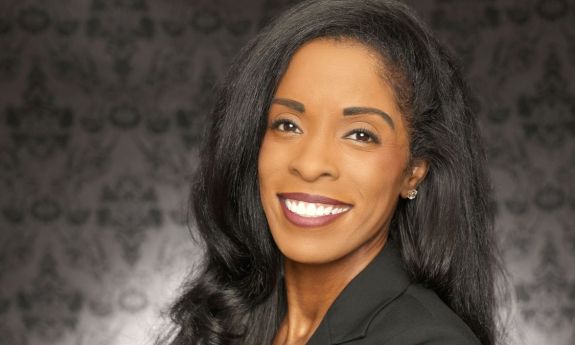Deondra Rose on Seeing Duke Leadership at Work
As a Presidential Fellow, Sanford professor shadowed President Price, senior leaders

By the end of the 2023-2024 academic year, Rose had several notebooks filled with insights from meetings with Price, Provost Alec Gallimore, Chief of Staff and Secretary to the Board of Trustees Maggie Epps and a slew of senior leaders she spent time with through the Presidential Fellowship program. The initiative was established by President Price four years ago to increase collaboration and faculty understanding of the decision-making process of the university administration.
Previous fellows have been sociologist Tyson Brown and engineer Adrienne Stiff-Roberts. The current fellow is nursing professor Iris Padilla.
In an interview, Rose said she came away from the fellowship appreciating the value of approaching challenges within different units from a wider university perspective.
“We all sit in our local communities on campus and could easily stay within our own communities, but we can really benefit from what others are doing,” Rose said. “What we’re doing at Sanford is connected to work at Trinity and to the library and to the Duke in D.C. office. There’s just so much potential for synergy at Duke, and the opportunity to do stronger work increases exponentially when you approach an issue from a university perspective.”

A second takeaway for her was the dedication of the officials to their responsibilities and the amount of preparation they did on issues large and small.
“I thought it was remarkable that all of these leaders took time to meet with me and to show me what they do. They were generous in their time and offered powerful insight into how they lead complex organizations. And I saw that not only in how they engaged with me, but also in how they engaged with others.
“For example, having the opportunity to watch President Price run through his commencement speech and to see his team brief him on the logistics was extraordinary. The seriousness of their approach was a powerful reminder of how much Duke leaders honor and respect the time and the work of everyone in the community.”
Rose is no stranger to university service and just came off a three-year term as director of Polis: The Center for Politics. “I've had the opportunity to participate in numerous leadership development programs over the course of my career, and this is by far the coolest thing I've ever done. As a scholar of higher education policy, having the chance to get a unique perspective on how higher education works by exploring each corner of Duke’s operation was illuminating.”
“As a scholar and a leader, Deondra forges insightful and powerful connections between the policy and practice of both democracy and higher education,” Price said. “I have very much enjoyed working with her, and especially appreciate ongoing opportunities to engage Deondra’s perspective on various aspects of the university’s mission.”
Although she is no longer a fellow, Rose’s fellowship work is not finished. Each fellow creates a project that fits a personal interest and also addresses a university need.
Rose’s project comes out of her longstanding work in building constructive discourse on campus. She is part of a larger cohort of Duke faculty working on this timely issue.
“We want students to leave college with the skills to have meaningful -- perhaps transformative -- conversations and to take their skills with them into their workplaces, their communities, and even their families. These are lifelong skills we can teach them.”
Deondra Rose
As part of this effort Rose is part of Duke’s participation with the Institute for Citizens & Scholars (ICS), a national group seeking to strengthen democracy through education. At one level, Price is part of the ICS president’s initiative, which brings senior university leaders together to discuss best practices in universities to promote civil conversations regarding contentious topics.
Rose’s contribution will use ICS recommendations to create and amplify opportunities for students to develop understanding of how to “build transformative conversations across ideological differences that are important for a healthy society,” she said.
“This work puts the research we’re doing into action,” Rose said. “This is an important role of higher education to foster these kinds of conversations. It’s part of our mission and values.
“We want students to leave college with the skills to have meaningful -- perhaps transformative -- conversations and to take their skills with them into their workplaces, their communities, and even their families. These are lifelong skills we can teach them.”
Throughout the year, Rose will use what she learned from the fellowship in her teaching and in her university service. She has already begun having conversations with other faculty about her experience.
“I'm grateful to President Price and to Maggie Epps for creating this opportunity for me.I feel a substantial sense of responsibility because I got this unusual opportunity to learn about Duke’s complexity and to learn from extraordinary leaders from across the university. Now I have a chance to try to share the insights I’ve gained from that experience with others.”